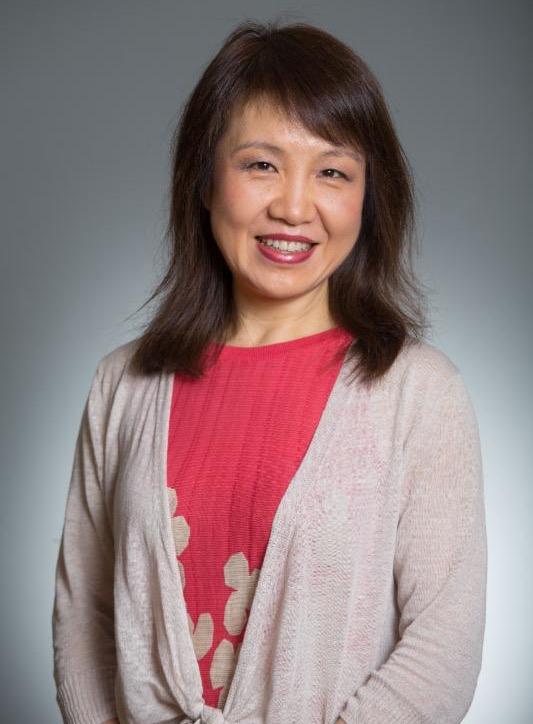 While she was growing up in Shandong, a province in Eastern China, Xiaomu Zhou dreamed of following her grandfather and two uncles into the medical field. But China was just beginning to open its markets to the West, and Zhou’s parents, professors of mathematics and electrical engineering, believed that an engineering degree would be a better guarantee of employment—not to mention a particular point of pride for a girl. She did well at “hard-core computer science” as a bachelor and master’s degree student, and then went on to teach computer science courses at China’s Renmin University in Beijing.
While she was growing up in Shandong, a province in Eastern China, Xiaomu Zhou dreamed of following her grandfather and two uncles into the medical field. But China was just beginning to open its markets to the West, and Zhou’s parents, professors of mathematics and electrical engineering, believed that an engineering degree would be a better guarantee of employment—not to mention a particular point of pride for a girl. She did well at “hard-core computer science” as a bachelor and master’s degree student, and then went on to teach computer science courses at China’s Renmin University in Beijing.
In 2003, Zhou entered a PhD program at the University of Michigan’s School of Information. It was there she was able to forge the link between computer information technology and human health and behavior. “When it came time to choose which informatics subject to focus on, I automatically chose healthcare,” she says.
Now an assistant teaching professor and the lead faculty member in the Master of Professional Studies in Informatics program, Zhou helps restructure and expand the curriculum, adding new concentrations and courses that provide students with more opportunities for their career paths. In addition to her teaching, she continues her studies in healthcare information systems, researching how doctors, nurses, and pharmacists use information technology to support their clinical practice. Her interests have allowed her to keep a foot in each field.
Using Information Technology to Find Gaps in Patient Care
Zhou focused her doctoral studies on the gaps between spoken and written communications in healthcare. She spent almost three years shadowing doctors, nurses, and pharmacists in a hospital’s internal medicine unit to examine their documentation practices. “It was an ethnography study,” she says.
It was also an enormous personal challenge: Before she came to Michigan, she had read and written in English, but listening and speaking was much harder. Zhou estimates that her doctoral research took about twice as long as it would have taken if she had been a native English speaker. “In the hospital, in the inpatient unit, you really expose yourself to every way that people talk,” she says.
Examining patient records over time, she found significant gaps between what clinicians communicate in speaking and what they document in the written medical record. Her most important finding was that doctors and nurses do not document a lot of important psychosocial information.
“In internal medicine, doctors spend 70 percent of their time investigating and helping patients on psychosocial issues, like substance abuse, domestic violence, or other family issues related to their physical and mental health,” Zhou says. “But if you don’t document them, how can you maintain continuity of patient care? The next team will spend a lot of time learning about a patient and asking the same questions.”
Zhou came to Northeastern in July 2016 from the Rutgers University School of Communication and Information, where she co-led the development of the Informatics and Design concentration and developed foundational courses for the new concentration.
At Northeastern, Zhou teaches two graduate courses in Informatics: the required capstone course and Healthcare Information Systems. The majority of her students plan to work for information technology-related companies. Some may become security analysts and help manage security systems for businesses or design e-commerce interfaces.
Solving Real-World Problems with Computing
In her Healthcare Information Systems class, students spend much of their time studying electronic health record systems—their fundamental features, how they are implemented in various organizational settings, and how they are similar to or different from paper-based systems. Zhou teaches her students that the nature of informatics in healthcare is identifying real-world problems and solving them with computing. Classes mix lectures with discussions, exercises, and critiques. Outside of class, each student conducts a case study, examining how an information system works in a local hospital or clinic.
Zhou’s favorite part of teaching the capstone course is her students’ creativity in selecting their projects, sharing ideas, and critiquing each other. In that course, students synthesize what they have learned in their core classes and apply this knowledge to real-world problems. Zhou pushes students to delve into subjects that interest them deeply.
One student reconnected with a former employer—a manufacturer of “green-energy” products, conducted the user experience study, and designed a new consumer interface for its website. Others have examined various security systems or commercial recommender systems, or analyzed various patient social media support communities and provided recommendations for a better design of the information technology support.
In her first 10 months at Northeastern, Zhou has been struck by the university’s supportive environment and openness to innovative ideas. As a faculty member in a new informatics program, she appreciates that there is room for flexibility and change.
When she’s not teaching, Zhou plays the accordion, an instrument on which she trained to a professional level, earning second place as a master’s engineering student in a university-wide music and art talent competition in Beijing. She also practices Bikram yoga, where the elevated heat of this yoga style reminds her of summers at the beach in Shandong.





Related Articles
Why Earn a Professional Doctoral Degree?
5 Tips to Get the Most out of Grad School
Is Earning a Graduate Certificate Worth It?